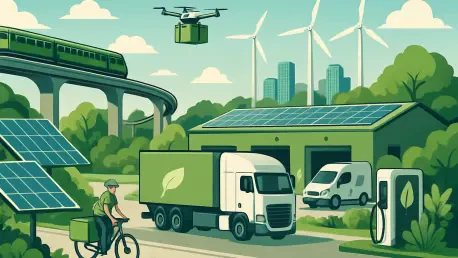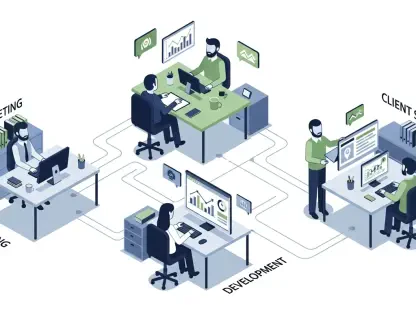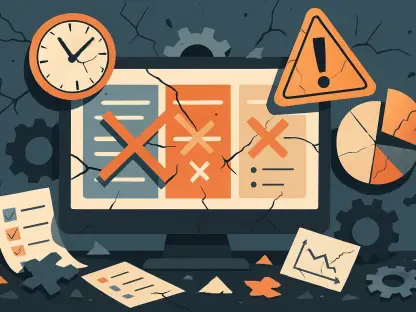Sustainability has emerged as a critical factor for businesses worldwide, increasingly dominating discussions across various industries. This shift is particularly evident in the logistics sector, which is intrinsically linked to environmental impact through transportation and infrastructure management. Companies are now prioritizing sustainable logistics infrastructure as an essential component to mitigate negative environmental consequences and enhance operational efficiency. This article delves into current trends, practical implementations, expert insights, and forecasts for the future of sustainable logistics infrastructure.
Current Trends in Sustainable Logistics
Growth Trends and Adoption Statistics
Sustainable logistics practices have seen a significant upward trajectory, driven by rising environmental awareness and regulatory pressures for lower carbon footprints. Recent data indicates a considerable increase in the adoption of eco-friendly infrastructure across the sector. Reports from credible sources highlight a year-on-year increase in green logistics solutions, such as electric vehicles, optimized routing, and energy-efficient facilities. This growing commitment reflects a broader societal move toward reducing logistics-driven environmental damage.
Real-World Applications and Case Studies
Corporations are actively embedding sustainability within their logistics frameworks, setting examples for others to follow. Palletways exemplifies this trend through its commitment to sustainable practices at its new headquarters at Fradley Park, Lichfield. By collaborating with Prologis UK, they are developing a facility that aligns with high environmental standards, leveraging features like solar PV arrays, rainwater harvesting, and efficient energy systems. Such implementations effectively showcase the potential of integrating sustainability into logistics operations, prompting industry-wide transformations.
Expert Opinions and Industry Insights
Industry experts emphasize the transformative potential of sustainable logistics, highlighting both opportunities and challenges. They assert that transitioning to sustainable practices not only advances environmental goals but also has economic benefits, enhancing brand loyalty and operational efficiency. However, they acknowledge challenges, such as initial costs and infrastructural legacy issues, which require strategic planning and investment. As logistics continue to evolve, expert voices underscore the pivotal role that sustainability will play, predicting lasting impacts on industry dynamics.
Future Prospects of Sustainable Logistics Infrastructure
Looking ahead, the sustainable logistics landscape promises exciting developments and innovations. Anticipated advancements include increased digitization, further adoption of renewable energy sources, and heightened collaboration across stakeholders. These trends are expected to yield substantial benefits, including reduced emissions, cost savings, and enhanced delivery reliability. Nevertheless, challenges such as technological adaptation and regulatory compliance will persist. Stakeholders with foresight and adaptable strategies will be best positioned to navigate these opportunities and hurdles, ensuring the sector’s resilience and alignment with environmental goals.
Conclusion
The analysis reveals the rapidly advancing realm of sustainable logistics infrastructure—marked by substantial growth, insightful real-world applications, and expanding expert validation. The strategic relocation of Palletways to Fradley Park not only underscores current trends but also reflects broader industry aspirations to account for environmental impact in logistics operations. As this trend matures, businesses must remain forward-thinking, adapting to new developments and challenges to sustain the momentum toward a greener logistics landscape. This presents a unique opportunity to align environmental strategies with business objectives, fostering a shared vision of sustainability in logistics for future generations.









